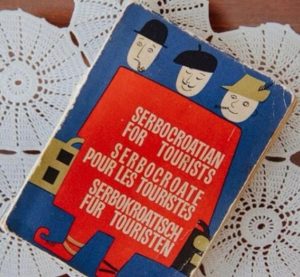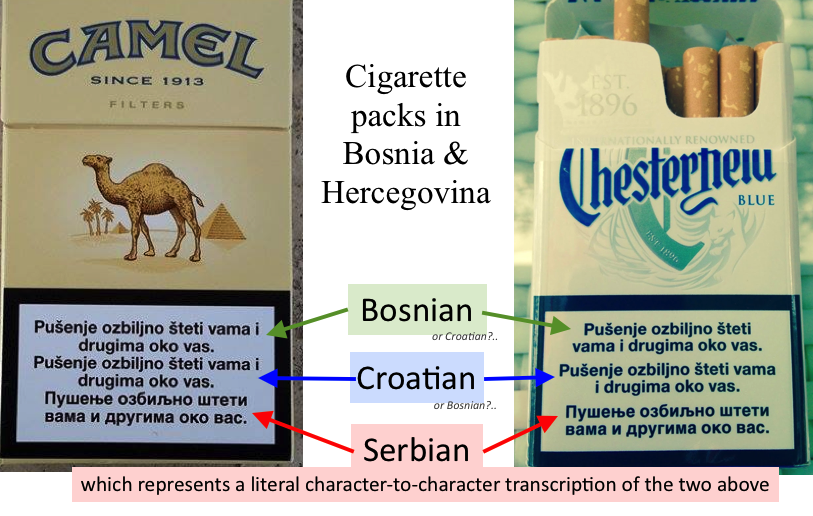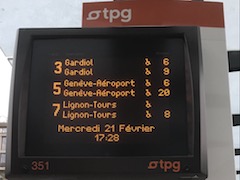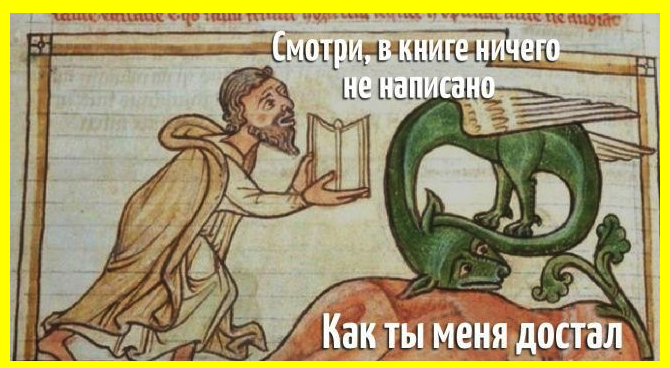 There is a language, óne language, spoken “from Đerdap to Jadran”, from Subotica to Podgorica across Vukovar, Sarajevo and thousands of picturesque towns and villages. Like Persian or Hindustani, the Serbo-Croatian language is pluricentric with two perfectly interchangeable and fully equivalent alphabets, with two equivalent standards of pronunciation (Ije- and Ekavian) unrelated to political borders (see map), with one single literary Štokavian norm and a number of extra-literary dialects, all unrelated to political borders across the linguistic continuum. Most important: the grammar — what principally makes a language a language — is identical in Croatia, Serbia, Montenegro, Srpska Republic and the Federation of Bosnia-Hercegovina. Without forgetting the Brčko district.
There is a language, óne language, spoken “from Đerdap to Jadran”, from Subotica to Podgorica across Vukovar, Sarajevo and thousands of picturesque towns and villages. Like Persian or Hindustani, the Serbo-Croatian language is pluricentric with two perfectly interchangeable and fully equivalent alphabets, with two equivalent standards of pronunciation (Ije- and Ekavian) unrelated to political borders (see map), with one single literary Štokavian norm and a number of extra-literary dialects, all unrelated to political borders across the linguistic continuum. Most important: the grammar — what principally makes a language a language — is identical in Croatia, Serbia, Montenegro, Srpska Republic and the Federation of Bosnia-Hercegovina. Without forgetting the Brčko district.
Regional differences in vocabulary are manifold (different areas use different blends of Slavic, Turkish, Hungarian, German and other ingredients), but those differences are well-known and intelligible for the speakers from other areas, exactly as is a Hollywood movie for a British film watcher. Croato-Serbian unconditionally remains a supranational koiné for 20+ million native speakers of this beautiful language.
Politicians and nationalists blindly ignore this obvious reality. They upgraded regional variants of the common language to a language proper, they invented “Serbian”, “Croatian”, “Bosnian” and “Montenegrin” languages emphasising trivial particularities and leveraging on minor differences.

Three TOTALLY identical texts. Political correctness 80 LVL
But the common sense should not suffer from this narrow-minded political myopia. Progressive people struggle for promoting the common sense, and this Declaration on the Common Language signed by a lot of good people is a good example that there is hope.
If the equation sovereign state = language is deemed normal, then I wonder why we still have no “Austrian language”, “Kuwaiti language” or “Australian language”. «Do you speak Nicaraguan?» — «No, sorry, I only speak Salvadorian, please translate». If being a sovereign state is enough to claim an individual language, then there would exist even two “Belgian languages”, because both Belgian Dutch and Belgian French do have a number of particularities vs. the Amsterdam and Paris norms, so why not? With this logic I would, as anybody else, have easily tripled or quadrupled the number of spoken languages.
P.S. The above text was proudly written in Bahamian. Don’t confuse with English!
 На автобусной остановке “Bel-Air” есть табло с информацией о шести автобусах. Все шесть не влезают на табло, поэтому высвечиваются они по очереди: 10 секунд первые три маршрута, 10 секунд другие три, потом снова первые три и так по кругу. Какова вероятность увидеть на табло свой маршрут, подойдя к табло в случайный момент времени? 0,5 же ж, ясень пень, вероятность орла или решки. База.
На автобусной остановке “Bel-Air” есть табло с информацией о шести автобусах. Все шесть не влезают на табло, поэтому высвечиваются они по очереди: 10 секунд первые три маршрута, 10 секунд другие три, потом снова первые три и так по кругу. Какова вероятность увидеть на табло свой маршрут, подойдя к табло в случайный момент времени? 0,5 же ж, ясень пень, вероятность орла или решки. База.


